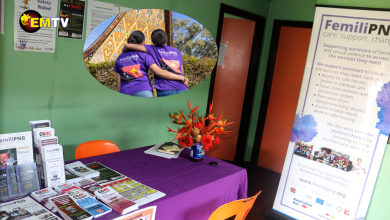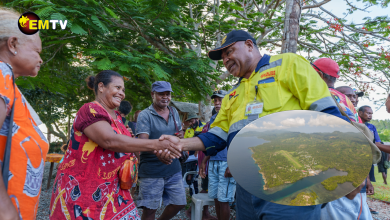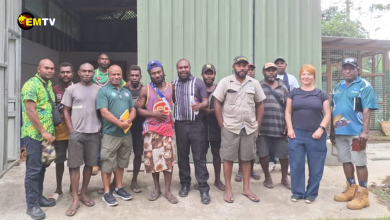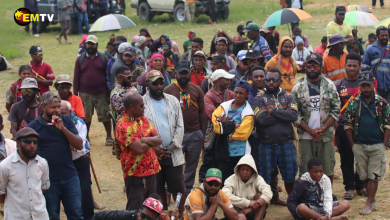Jerry Kootz Simon and Peter Badstue Jensen. Source: PBF Agro
A Papua New Guinea investment company is looking to build two agribusiness projects which will turn sea water into fresh water and extend the life of locally-grown fresh fruit and vegetables. PBF Agro Business General Manager Jerry Kootz Simon explains to Business Advantage PNG.
PBF Agro Business, a wholly-owned subsidiary of PNG’s largest private equity fund, Pacific Balanced Fund, is planning two new agribusiness projects.
One, Integrated Energy System (IES), involves using solar energy to produce fresh fruit and vegetables (tomatoes, lettuce and strawberries) as well as producing fresh water from seawater.
A second project uses steam generation to run a cool storage facility, which will extend the shelf-life of fresh fruit and vegetables.
Cool millions
The IES project is costed at K102 million, while the second at K94 million, says PBF Agro Business General Manager Jerry Kootz Simon.
‘The projects are in line with the PNG Government’s Vision 2050 policies.’
He wants to establish the IES plant on 20 hectares of land near Port Moresby, five kilometres from the sea, while the second project is planned for a location near the PNG LNG site, 20km northwest of the capital.
There will be enough solar energy to power each facility remotely and excess energy can be sold to the grid, he said.
In one year the total heat output in the second project will generate 326,970 cubic metres of fresh water per year and 39,205 megawatt hours of cooling per year.
Feasibility study
The projects, says Simon, are in line with the PNG Government’s Vision 2050 policies.
‘Unfortunately, because of the scale of investment, logistical constraints, and the technical know-how required, the government has not pursued its plan to roll out the safe drinking plan to rural parts of Port Moresby,’ says Simon.
‘The study has shown the two projects are viable.’
But he says this could all change, following a successful feasibility study, just completed by Danish clean energy firm, Aalborg CSP.
Simon says the study has shown PBF’s two projects are viable and he has recommended they to go to the next stage: the pre-engineering, design stage.
‘These two projects, if backed by PNG-based investors and donors, will not only support local communities in improving food security, but also give carbon credits to PNG’s balance sheet in promoting sustainable investment projects that are world class and reduce our reliance on fossil fuels in the long term.’

Possible site for the project at a location near Port Moresby. Source: PBF Agro
Track record
Three years ago, Aalborg CSP built the world’s first solar-based Integrated Energy System in South Australia. Operational since October 2016, the farm grows high-value crops in the South Australian desert using seawater and sunlight as main resources.
‘Project partners will contribute grants of between K50,000 to K127,000 for the pre-engineering design stage to commence.’
Their client, Sundrop Farms, aims to produce more than 17,000 tonnes of fresh vegetables annually for Australian consumers, which is about 15 per cent of Australia’s entire tomato market.
Simon says he expects project partners will contribute grants of between K50,000 to K127,000 for the pre-engineering design stage to commence. He is hoping to commence building the projects by late 2018 and that they will be up and running by 2020.
PBF Agro Business is a wholly-owned subsidiary of PNG’s largest private equity fund, Pacific Balanced Fund, the trustee of which is Melanesian Trustee Services Ltd. It was set up in 2014 to expand its investments in PNG’s agriculture sector.






